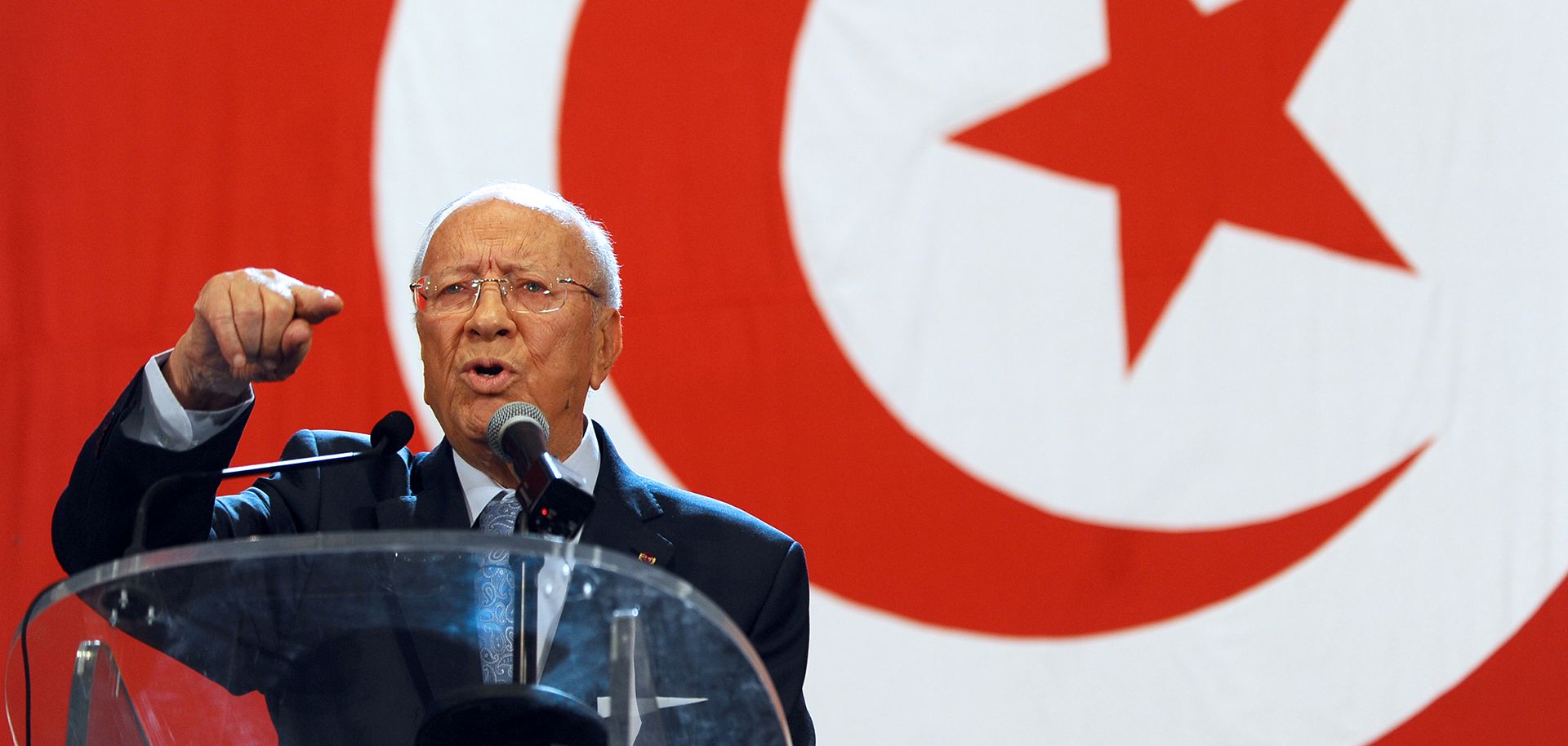ASSESSMENTS
Tunisia's Secularists Challenge Ennahda in Elections
Oct 25, 2014 | 13:01 GMT

(FETHI BELAID/AFP/GettyImages)
Summary
Tunisia's Oct. 26 general elections — the first since the country adopted a new constitution in January — feature an unusually high number of political parties. Voters will choose from more than 1,300 competing lists and 10 times as many candidates for a total of 217 seats within the Assembly of People's Representatives. The elections highlight the familiar rivalry between the country's secular and Islamist communities. In previous elections, Tunisia's secularists lacked unity and organization. However, they have regained support among the general population and stand to pose a serious challenge to the moderate Islamist Ennahda party, which dominated Tunisia's political landscape from late 2011 until the end of 2013.
Despite the deeply engrained political competition between the two camps, both are concerned with persistent economic malaise, the rising threat of domestic and regional jihadism and the risk of violence spilling over from Libya. These common interests could lead Tunisia's secular and Islamist political forces into reluctant cooperation. Neither side is expected to get a majority of the votes in the election, and each fears the potential consequences of sidelining the other. With assistance from non-political actors, such as Tunisia's powerful unions, a coalition government could potentially form during intense behind-the-scenes negotiations, though any coalition would prove weak and fractious. An agreement between the secularists and Ennahda might ameliorate — but will not eliminate — Tunisia's current economic and security challenges.
Subscribe Now
SubscribeAlready have an account?
